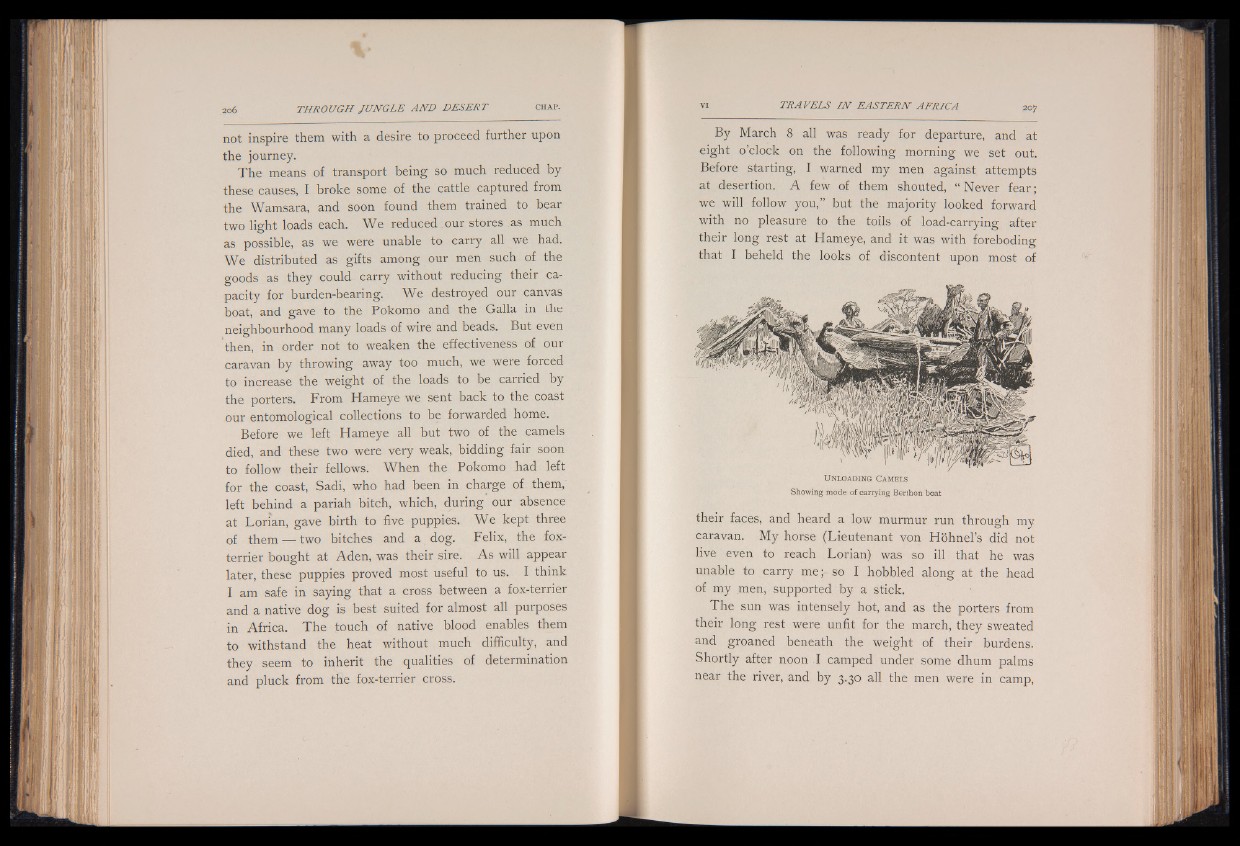
not inspire them with a desire to proceed further upon
the journey.
The means of transport being so much reduced by
these causes, I broke some of the cattle captured from
the Wamsara, and soon found them trained to bear
two light loads each. We reduced .our stores as much
as possible, as we were unable to carry all we had.
We distributed as gifts among our men such of the
goods as they could carry without reducing their capacity
for burden-bearing. We destroyed our canvas
boat, and gave to the Pokomo and the Galla in the
neighbourhood many loads of wire and beads. But even
then, in order not to weaken the effectiveness of our
caravan by throwing away too much, we were forced
to increase the weight of the loads to be carried by
the porters. From Hameye we sent back to the coast
our entomological collections to be forwarded home.
Before we left Hameye all but two of the camels
died, and these two were very weak, bidding fair soon
to follow their fellows. When the Pokomo had left
for the coast, Sadi, who had been in charge of them,
left behind a pariah bitch, which, during our absence
at Lorian, gave birth to five puppies. We kept three
of them — two bitches and a dog. Felix, the fox-
terrier bought at Aden, was their sire. As will appear
later, these puppies proved most useful to us. I think
I am safe in saying that a cross between a fox-terrier
and a native dog is best suited for almost all purposes
in Africa. The touch of native blood enables them
to withstand the heat without much difficulty, and
they seem to inherit the qualities of determination
and pluck from the fox-terrier cross.
By March 8 all was ready for departure, and at
eight o’clock on the following morning we set out.
Before starting, I warned my men against attempts
at desertion. A few of them shouted, “ Never fear;
we will follow you,” but the majority looked forward
with no pleasure to the toils of load-carrying after
their long rest at Hameye, and it was with foreboding
that I beheld the looks of discontent upon most of
U n l o a d in g C a m e l s
S h ow in g m o d e o f c a r r y in g B e r th on b o at
their faces, and heard a low murmur run through my
caravan. My horse (Lieutenant von Hohnel’s did not
live even to reach Lorian) was so ill that he was
unable to carry me;-so I hobbled along at the head
of my men, supported by a stick.
The sun was intensely hot, and as the porters from
their long rest were unfit for the march, they sweated
and groaned beneath the weight of their burdens.
Shortly after noon I camped under some dhum palms
near the river, and by 3.30 all the men were in camp,